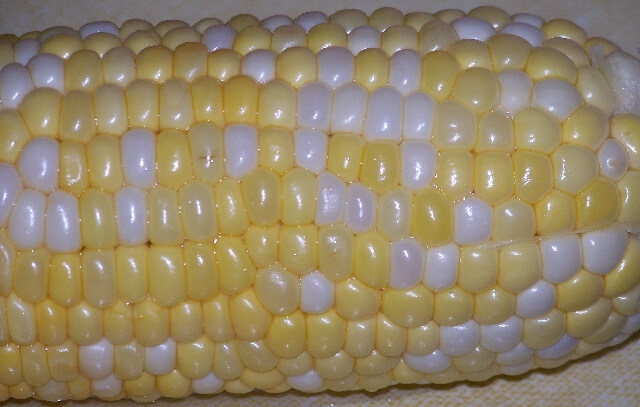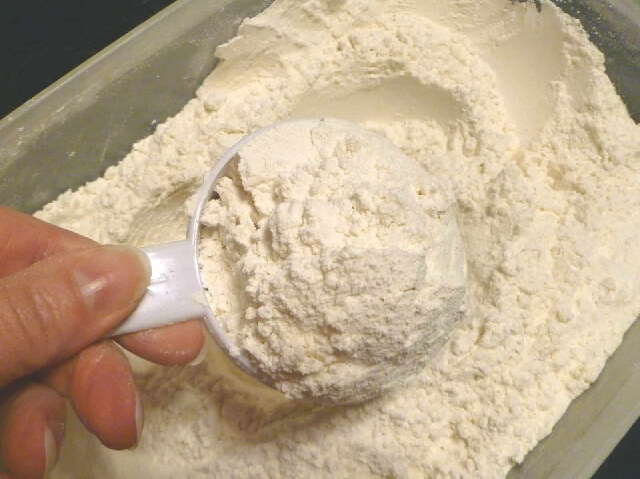In recent years, corn starch has become a more environmentally-friendly option for those looking for an alternative to traditional synthetic household cleaners.
But is corn starch eco-friendly, or does it come with its own set of environmental concerns?
Corn starch is eco-friendly because it’s made from maize grain, a renewable resource. It’s vastly recognized as a cooking ingredient for thickening soups and sauces or making corn syrup.
Be that as it may, corn starch isn’t readily biodegradable. It can therefore be harmful to the environment if not disposed of properly.
We’ll be exploring the question in detail.
What is Corn Starch Made Of?
Corn starch comes from the starches found in corn kernels. These starches get extracted and ground into a fine powder, which gets used in various food and industrial applications.
Alongside that, corn starch can act as a thickener, binder, and stabilizer in many different products.
It’s also a common ingredient in eco-friendly laundry detergents and cleaning products.
Is Corn Starch Eco-friendly?
There are a few things to consider when answering the question of whether or not corn starch is eco-friendly:
Biodegradable Alternative to Plastics
Corn starch can serve as a carbon-neutral, biodegradable option for plastics. The sugars in corn starch can undergo processing to form polylactic acid (PLA), which is more eco-friendly than regular plastic.
PLA boasts similar characteristics as fossil or petroleum-based plastics. As such, they can substitute hazardous plastics as:
- Disposable tableware
- Packaging equipment
- Medical equipment, e.g., dog waste bags, textiles, sutures, etc.
The FDA approves and certifies PLA as food-safe. Under the right conditions, polylactic acid can break down into water and carbon (IV) oxide within 90 days.
However, the degradation process requires a composting facility with apt microbes and high heat. It’s for that reason PLA isn’t very eco-friendly as many people believe.
If you take corn starch plastic to recycling centers, it may contaminate other recyclable plastic.
This leads to salvaged plastic that can no longer be usable.
Production Process
Corn starch is an agricultural product, and so the production process begins with growing corn. To grow corn, farmers must use pesticides and fertilizers, which can harm the environment.
Maize cultivation poses the same environmental impacts as other row crops like potatoes and sugar beets.
Once the corn gets harvested, it undergoes processing to form corn starch. This processing requires energy and in turn produces harmful pollutants.
Corn starch is popular as a fuel source at the industrial level, and ethanol is a perfect example.
An environmental evaluation of cornstarch-based ethanol established that fuel is an excellent alternative to gasoline vehicles.
That’s because corn starch ethanol fuel produces less smog and global warming. But still, it is not the best choice compared to conventional gasoline.
So corn starch is generally eco-friendly to a certain extent. It depends on how it gets produced. And for what purpose.
If you’ve regular corn starch products, consider composting or disposing of them in landfills.
They’ll decompose without causing significant harm to the environment. But if it is polylactic acid, consider sending it to the industrial composting facility under the right conditions.

Is Corn Starch Good for the Environment?
There’s no easy answer to whether corn starch is good for the environment.
Corn starch is a natural product that degrades over time, making it eco-friendly.
The production of corn starch has a significant impact on the environment nevertheless.
Farms that produce corn for corn starch plants often use large amounts of pesticides and fertilizers, which can harm the environment.
The manufacturing process of corn starch also creates pollution. So while corn starch may be biodegradable, it’s not always environmentally friendly.
Is Corn Starch Biodegradable?
The answer to this question is a little more complicated than a simple yes or no.
Corn starch is biodegradable because it can break down to form carbon dioxide, water, and inorganic compounds by the action of microorganisms.
But the process can take about 90 days and doesn’t happen in every environment.
For corn starch to be a truly biodegradable product, it must undergo composition under the right conditions, which only industrial composting facilities can offer.
Unfortunately, most people don’t have access to composting facilities, so corn starch often ends up in landfills where it takes much longer to decompose.
Is Corn Starch a Renewable Resource?
Corn starch is a renewable resource. That means, its supply will continue as long as people grow maize in large quantities.
But it also has a few drawbacks:
- Corn is a thirsty crop. It takes a lot of water to grow, and the ethanol production process consumes even more.
- Corn starch manufacturing creates harmful greenhouse gas emissions.
How Do You Dispose of Corn Starch?
You can easily dispose of corn starch by flushing it down the drain with water.
It’s worth noting that corn starch doesn’t biodegrade overnight. This means it will remain in the environment for some time before it gets acted on by microorganisms.
If you’re using cornstarch packaging, you can dispose of it as you wish because it will still be eco-friendly.
You can choose to compost the cornstarch packaging or send it to a landfill. It will take about 72 to 90 days to completely break down.
As for PLA, you can send it to industrial composting facilities for proper decomposition.
Don’t put it in your home compost unless you have such facilities and proper conditions.
Conclusion: Is Corn Starch Eco-Friendly?
Corn starch gets derived from corn, which is a natural and renewable resource.
That means corn starch is biodegradable, eco-friendly, and can go into the compost pit.
But when disposed of in landfills, it can release methane while decomposing, which is harmful to the environment.
Therefore, corn starch is not entirely eco-friendly, but it is better than other plastic alternatives.
The only problem is that PLA cornstarch requires industrial composting facilities with high heat and correct microbes.
Without these conditions, the material will not decompose naturally in the environment.
It means that PLA-based corn starch will take longer to decompose, affecting the environment negatively.



